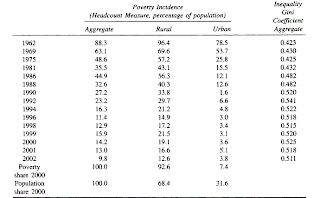This article begins with talking about how the ideal level of government intervention in the economy is one the is right in the middle between a total capitalistic approach and the opposite end of the spectrum. It then describes the history of the government's control of the economy in the U.S. since the start of our country. It talks about how the government originally did nothing to control the economy because they thought that would be the best way for it to grow. However, due to the extremely poor working conditions of factory workers, the government decided they need to step in. Ever since, their mentality has been to do whatever it takes to make sure that the economy stays healthy and grows properly. Basically, ever since then, the government has just been adding regulation with hopes of keeping a high level of jobs and a strong market. When programs such as Social Security were started under FDR, the goal was to directly put money into the pockets of consumers so they could then stimulate the economy with all of this new spending money. Another important program that was started under FDR was the Federal Deposit Insurance Corporation (FDIC) which insures people who put money in banks. Clearly this intervention by the government was extremely helpful in a time when the economy was the worst it has ever been. But one question that the author has is whether or not all of this regulation is still what is needed. Clearly is has been proven that some regulation is necessary in order for an economy to succeed, but the question is really just finding the perfect amount.

http://mashedpotatobulletin.files.wordpress.com/2012/03/regulation-scales.gif
This source is from a data base so I assume that both the information and the article are both very credible.
Has the government already found that perfect amount of regulation? Or do we need to keep looking?











